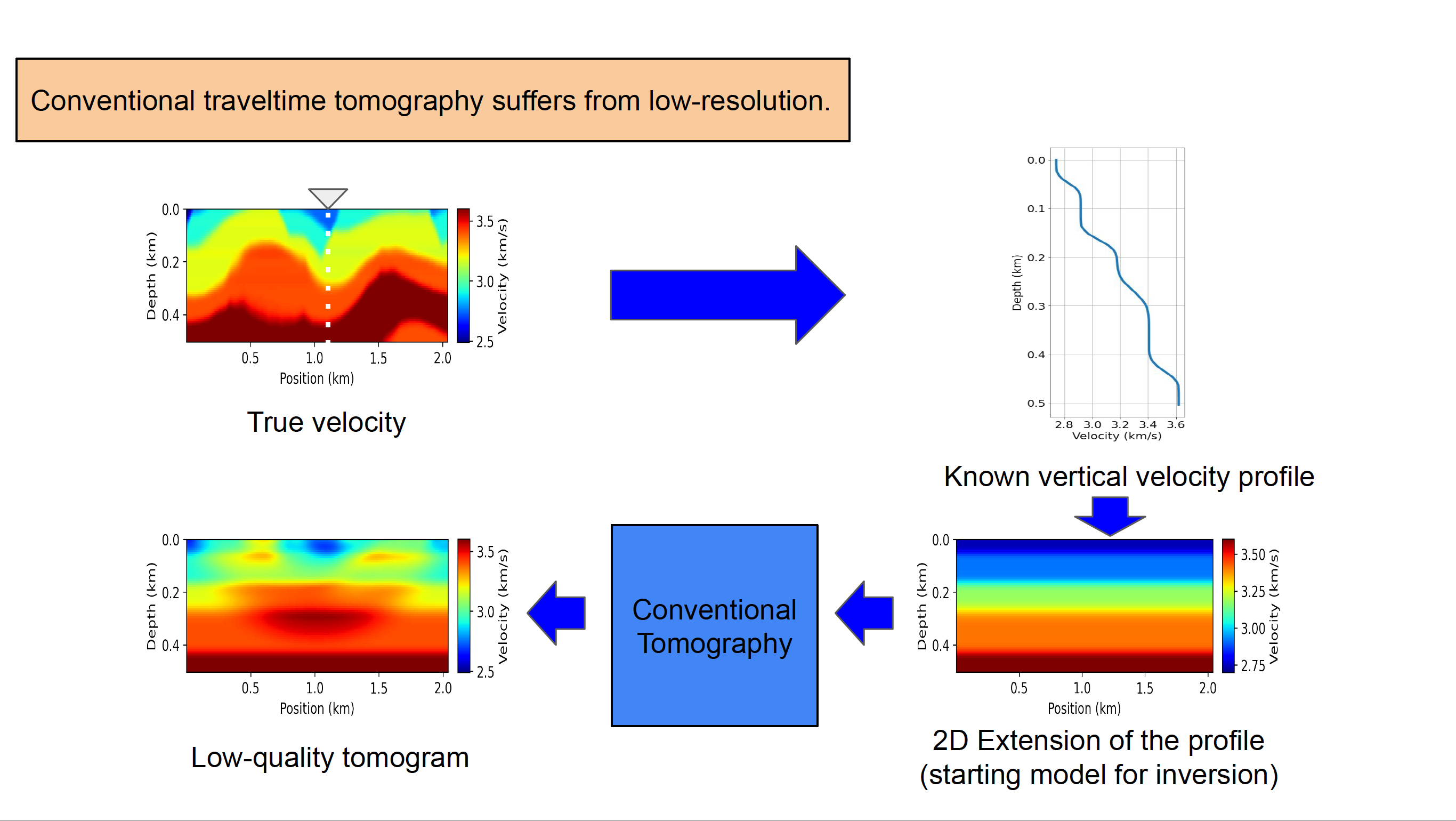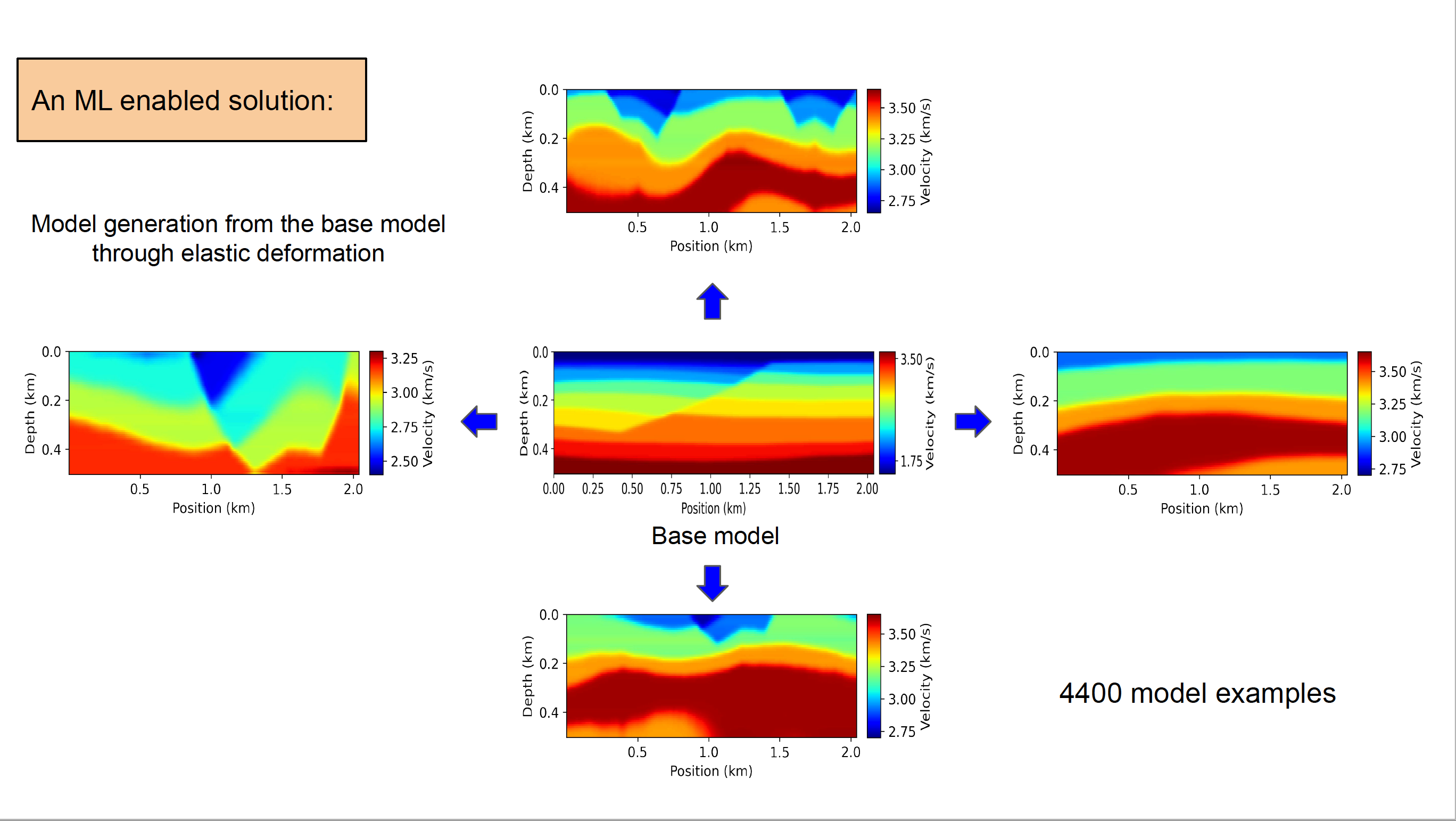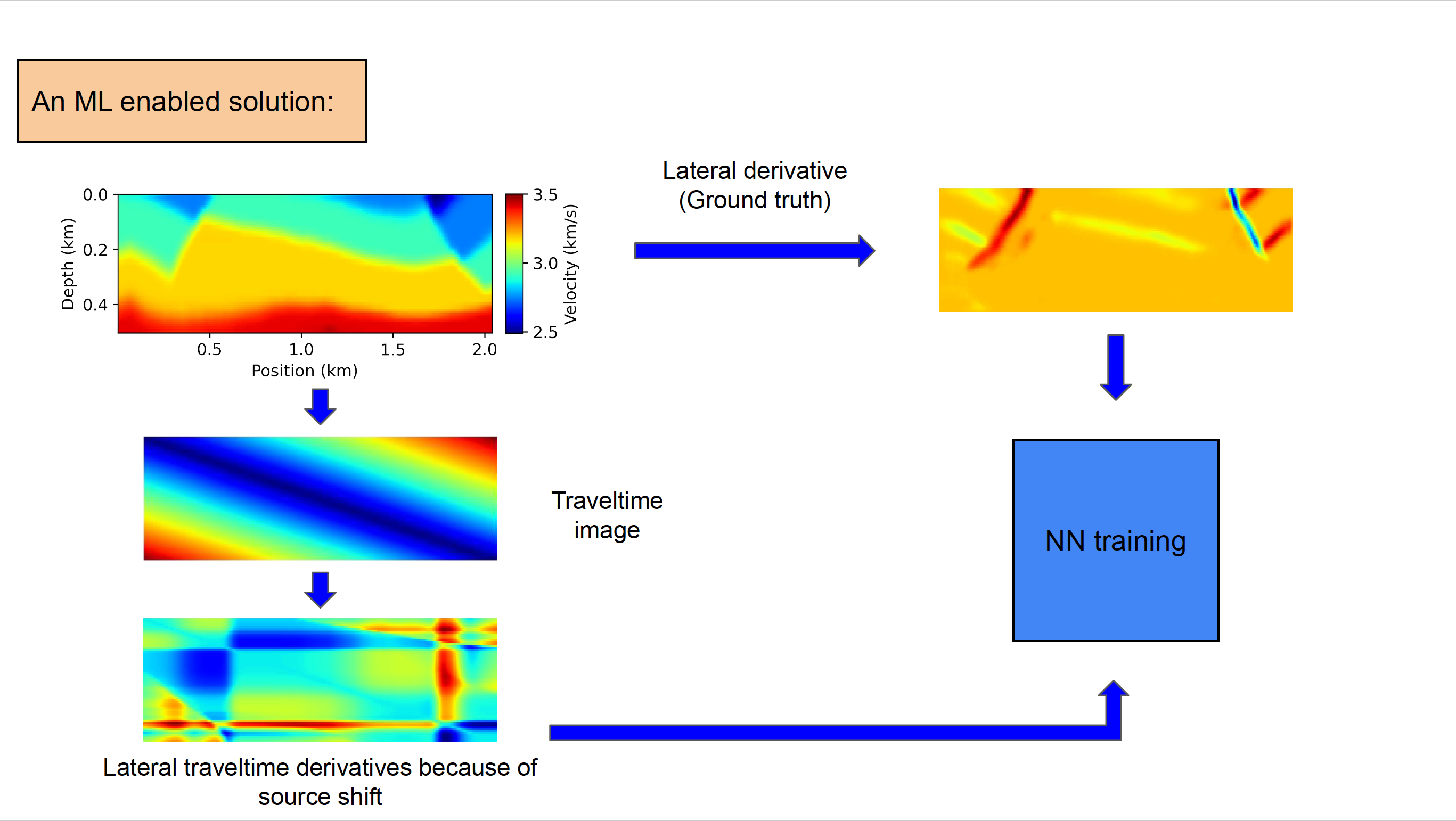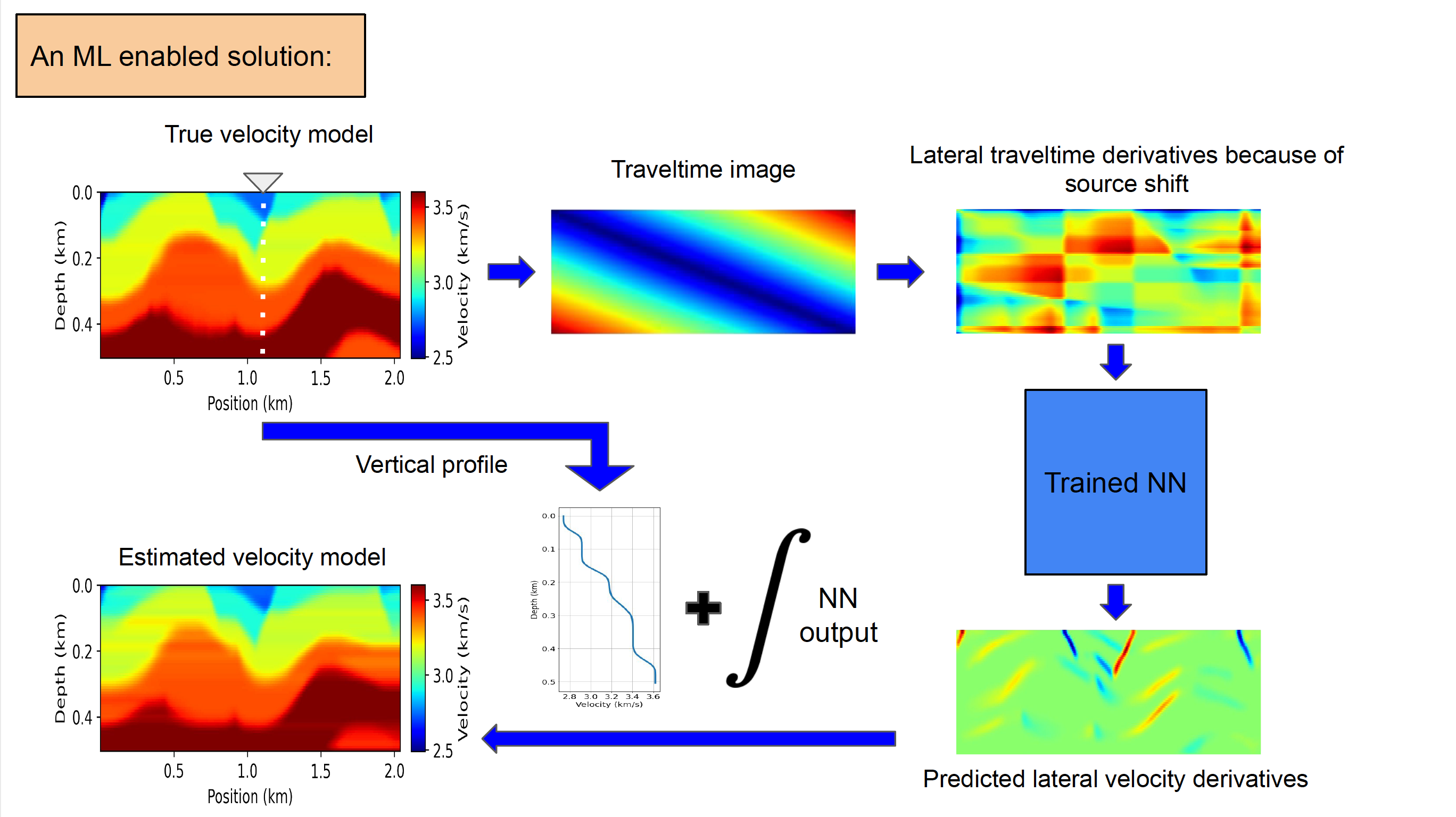Machine Learning Enabled Traveltime Inversion Based on the Horizontal Source Location Perturbation (Yildirim, I.E., et al, 2021)
We propose a novel approach to traveltime inversion aiming to enhance the quality of the near-surface tomograms. Conventional gradient and ray-based tomography suffer from some problems. The former might cause low resolution tomograms because of its inherent smoothing property; the latter, on the other hand, suffers from the limitations inherent in ray tracing, which limits its use in complex media. To mitigate the drawbacks of conventional approaches, we use data-driven inversion techniques based on training deep convolutional neural networks (DCNN). Since DCNN often faces challenges in detecting high-level features from the relatively smooth traveltime data, we use this type of network to map horizontal changes in observed first arrival traveltimes caused by a source shift to lateral velocity variations. The relationship between them is explained by a linearized eikonal equation. Construction of the velocity models from this predicted lateral variation requires information from, for example, a vertical well-log in the area. This vertical profile is then used to build a tomogram from the output of the network. Our results verified that the fully convolutional network (FCN) architecture is successful in capturing abstractions from data that contains traveltime variations and can be used to accurately estimate the velocity model, as compared to traditional tools, especially when the geological focus is the near-surface.




References
Yildirim, I.E., Alkhalifah, T., Yildirim, E.U., 2021, “Machine Learning Enabled Traveltime Inversion Based on the Horizontal Source Location Perturbation”, SEG Technical Program Expanded Abstracts.
Yildirim, I.E., Alkhalifah, T., Yildirim, E.U., 2021, “Machine Learning Enabled Traveltime Inversion Based on the Horizontal Source Location Perturbation”, SEG Technical Program Expanded Abstracts.